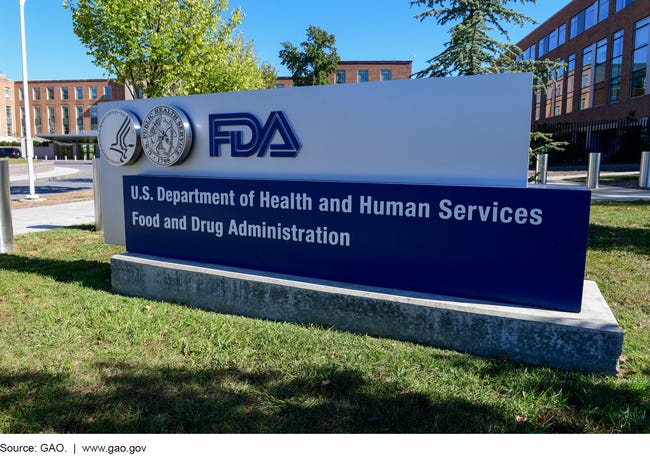
What will we do when we can’t trust the FDA?
In late 2020, as the COVID-19 vaccine was nearing approval, President Donald Trump repeatedly remarked about the Food and Drug Administration’s vaccine approval process and said that “no president’s ever pushed” the FDA like he did. Until then, any interference with the FDA’s approval process by a politician, even a perceived interference, was unheard of. Those of us in medicine reassured our patients and the public that the FDA’s process was rigorous, standardized, and not subject to political pressure. We vowed we would only take a vaccine once it had been reviewed and approved through the agency’s standard procedures.
Even then, the politicization of science was corrosive. When then-Sen. Kamala Harris (D-Calif.) voiced hesitation about taking a vaccine endorsed solely by Trump, the right weaponized her words to undermine trust in both her and the process itself. The result was a dangerous cycle of mistrust in vaccines, the FDA, and the institutions designed to keep us safe.
Fast forward to last week. Trump (at a podium again) floated a specious correlation between Tylenol use in pregnancy and autism, raising alarm and hinting at new FDA warnings. That was quickly followed up by official action by the FDA to initiate a label change, seemingly disproportionate to the available evidence and likely based on ideology and not long-standing FDA process.
For me, it raised an immediate red flag: If they are willing to target acetaminophen with junk science, how long before they come for a medication they really hate, like mifepristone?
Earlier this year, a right-wing think tank funded and published a paper questioning the safety of mifepristone, a drug with decades of proven evidence supporting its safety and efficacy for miscarriage care and medication abortion. The “study,” which prompted a collective response from nearly all relevant professional societies, contradicted mountains of existing research, and its real purpose was obvious: to provide cover for the FDA to roll back access to a medication that had previously been described as “safer than Tylenol.”
Based on a letter from the Department of Health and Human Services to Republican attorneys general this week, it appears that’s precisely what is happening. We can’t say they didn’t warn us. This is exactly what was spelled out in Project 2025: calling on the FDA to reverse the 2021 decision to allow mifepristone to be dispensed by mail instead of handed to a patient in person. This authorization, which occurred at the height of the COVID pandemic, increased access to this important medication for patients all over the United States, especially in rural and remote settings. This change was an evidence-based and science-driven. Reversing that decision based solely on ideology and political pressure would mark a dangerous precedent.
The consequences go far beyond reproductive health care. Once the FDA demonstrates that it will amend approvals for political reasons, the entire process becomes suspect. Investors who fund drug development will hesitate, knowing approvals can be undone by the stroke of a pen. Patients will question whether their medications, whether for diabetes, high blood pressure, or cancer, are truly safe or simply politically convenient.
In 2023, as Food and Drug Administration v. Alliance for Hippocratic Medicine, a case challenging the FDA’s original approval of mifepristone, was making its way to the Supreme Court, over 500 pharmaceutical executives signed an open letter reinforcing the fact that undermining FDA authority would destabilize the entire industry. They were right to be concerned. The legitimacy of every FDA approval rests on the assumption that science, not politics, drives the process, and that once approved, barring additional safety concerns, continuous approval would not be at risk.
This is not just about mifepristone. It’s about whether the FDA can remain the trusted arbiter of safety and efficacy. If the agency caves to pressure here, what comes next? Could a future administration pull approvals for a diabetes drug because its manufacturer is politically out of favor? Could cancer medications be targeted under the guise of a pseudo-scientific study?
We are watching the unraveling of the vaccine recommendation process at the CDC with states forming their own advisory committees and coalitions to recommend a vaccine schedule and others abandoning vaccine mandates all together, creating a patchwork of rules that erode national trust in our federal system. If the FDA follows that same path reversing approvals based on ideology rather than evidence, then we lose the foundation of drug safety in America.
When will we know we can’t trust the FDA? If the agency moves to restrict mifepristone access against the weight of decades of evidence, that will be the moment. And once that trust is broken, it won’t just be miscarriage and abortion care at stake; it will be the safety and confidence of every American who takes any medication at all.
Dara Kass is an emergency physician and the founder of FemInEM, an organization dedicated to the advancement of women in emergency medicine and addressing reproductive healthcare issues in our emergency departments.
Source link

